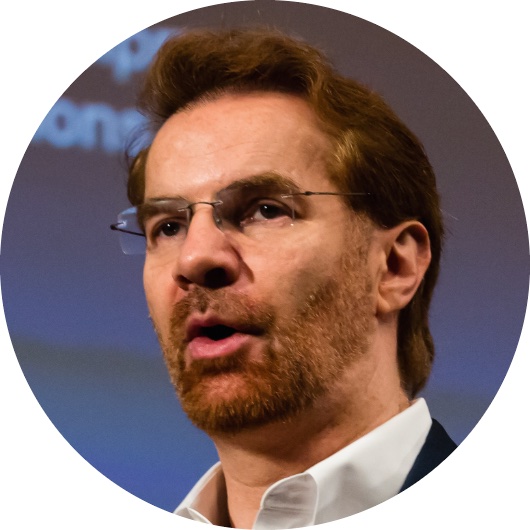PRESS COVERAGE
Businesses are not putting people in the right jobs – how tech can help
By Oliver Pickup - 08 March 2023

CV Robot
Most business leaders who offer variants of the cliché that “people are the company’s greatest asset” seldom match words with deeds. More worrying, though, is that people are not being matched to jobs in which they can excel – now more than ever.
Today, in the shadow of the coronavirus pandemic – which spurred people to change roles in record numbers and forced companies to accelerate digitalization – this has never been a more significant challenge. But if things don’t improve, and mindsets and processes fail to evolve, tomorrow will be even tougher for everyone.
Indeed, in January 2021 – before the ongoing Great Resignation trend hit top gear – McKinsey calculated that 87% of organizations worldwide knew they had a skills gap.
Alarmingly, a vast majority of organizations were taking the wrong, outdated approach to managing and developing human capital, argued professor Erik Brynjolfsson, director of the Digital Economy Lab at the Stanford Institute for Human-Centered AI, and arguably the world’s leading expert on the role of digital technology in improving productivity.
“Human capital is a $220 trillion asset in the U.S. – bigger than all the other assets put together, and about ten times the country’s gross domestic product,” said Prof. Brynjolfsson. “The most important asset on the planet is the one we’ve been measuring the worse.” As a result, human capital has been “probably the most misallocated asset on the planet. Businesses are not putting the right people in the right jobs; they’re not hiring, firing, and reassigning where they need to be doing it.”
This gloomy analysis is a lose-lose for employer, employee, and society, added Brynjolfsson. “Think of how many people are not in the right job, living lives of quiet desperation,” he said.
Living up to potential
The most lamentable aspect was that those in poorly matched roles would likely have the – currently underused or unused – skills to thrive in a more suitable position. “They probably have some capabilities that could fulfill another job much better, but they’re not being matched to it because the infrastructure is not there,” added Brynjolfsson. “The real value is getting people to live up to their potential.”
With organizations realizing how business critical it is to attract and retain skilled workers, investment has been poured into technology solutions to better recruit and develop talent, said Brynjolfsson. “This is something that we could be much more scientific about and match people to the jobs that fit their skills and interests much better.”
Brynjolfsson and his Digital Economy Lab colleagues have built a solution called work2vec, which mines the data (such as skills required, activities involved, compensation and location) from 200 million online job postings to create indexes of jobs. It gathers an equal amount of job resumes and then converts both data sets to vectors, and the technology finds adjacencies between the resumes and job ads to create matches. That information can help companies create a road map for where they need to hire and reskill, and where the gaps and surpluses are, added Brynjolfsson.
“If you need a machine-learning person, they may be hard to find,” he said. “But if you hire a data scientist and teach them [coding language] Python, then they can be converted.” Despite work2vec only being in its early start-up stage, Brynjolfsson added that the team is struggling to cope with excessive demand from businesses that are interested in using the platform.
“Hiring a mismatched individual is a costly mistake for businesses, given the time, resources, and money it takes. The same can be said for failing to develop existing talent, with employees choosing or being asked to leave, triggering the recruitment process.”
James Grundy, a mergers and acquisitions associate at global investment bank Houlihan Lokey, said business leaders should expect much development in this area in the coming months and years. “Investors are looking for technologies that address the key challenges faced by HR teams, now and in the future.”
He added that HR teams were “increasingly dependent on technology that can empower them in the war for talent and help them manage an increasingly hybrid workforce, navigating the transition from an aging, experienced workforce to a digitally native, remote workforce.”
Skills-based hiring
Richard Collins, co-founder of skill-based hiring platform CV Wallet, stressed that investing in tech would be worth every dime. “Hiring a mismatched individual is a costly mistake for businesses, given the time, resources, and money it takes,” he said. “The same can be said for failing to develop existing talent, with employees choosing or being asked to leave, triggering the recruitment process.”
Collins pointed to Glassdoor research from 2019 that showed the average employer spends £3,335 ($4,000) and 24 days per hire. Further, he warned that a broad, “spray and pray” approach to job adverts would be counter-productive. “They’re often badly written, poorly targeted, and result in either too many unsuitable applicants or not enough relevant ones,” he said. “This leads to the herculean task of wading through CVs, 63% of which hold misinformation.”
He added: “Amid a skills shortage, skills-based hiring is the future because it’s about finding people that can do the job, rather than focusing on their background or which school they attended.”
London-based Maya van de Ven, global director of product marketing at talent management technology firm Talogy, offered an example of how the right tech and data solution can optimize the hiring process. Last year the company helped an automotive manufacturing organization reduce job application time by half, their assessment time by 75%, and improve gender diversity by creating a new assessment process that standardized the global hiring process “while keeping regional requirements top of mind,” according to Talogy.
Van de Ven cautioned, however, that relying on technology alone would be foolhardy. “The negatives can outweigh the positive impacts if technology in assessment is not used properly, with robust science to tailor the results to your company and specific role needs,” she added. “Combining the two creates a great experience for both the employer and the participant, allowing both parties to get to know each other and feel that the best possible decision is being made.”




